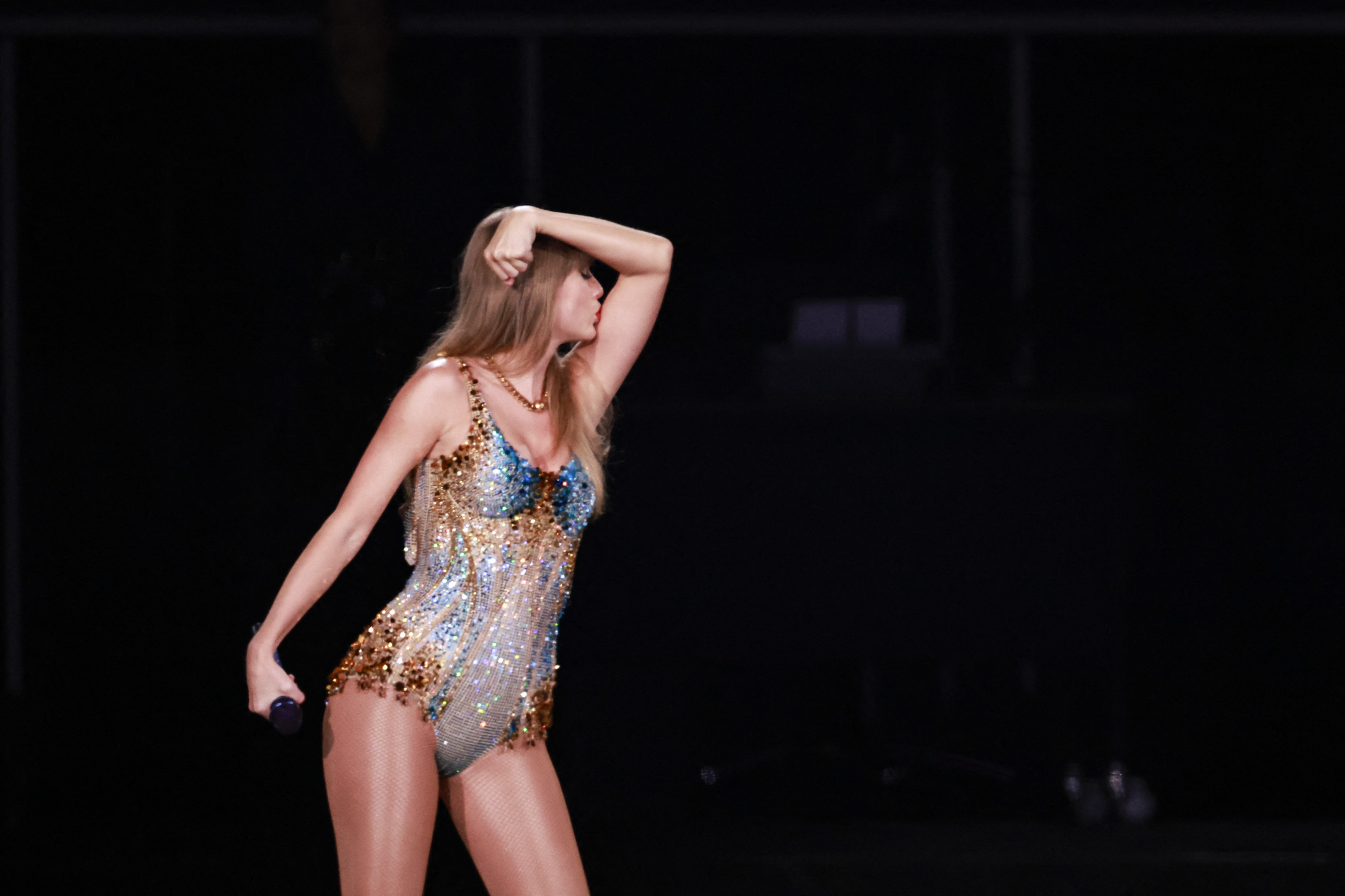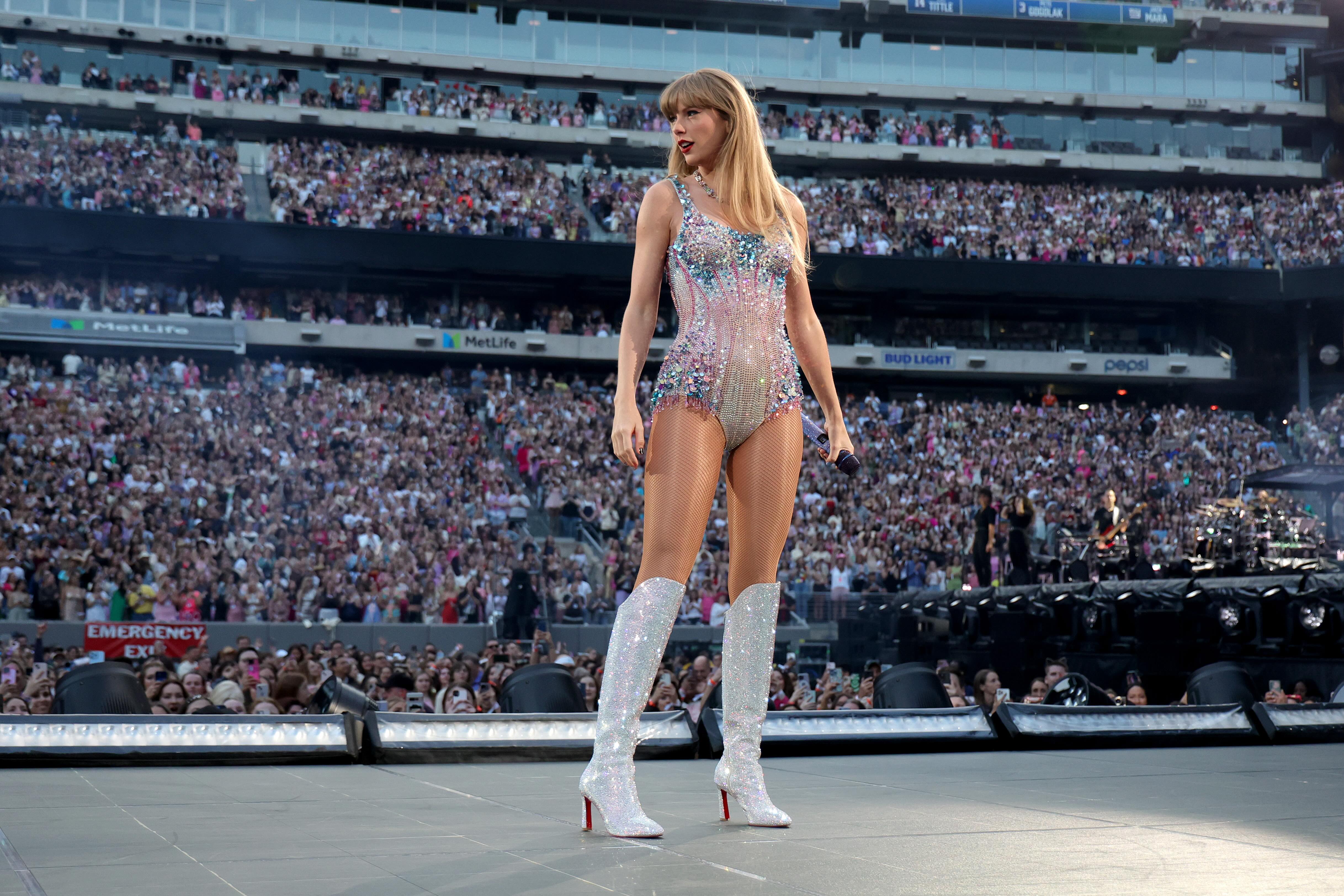
‘The Man’: Taylor’s feminism could go so much further

Taylor Swift’s ‘The Man’ promotes the idea of women being given the same standards as men, we should instead focus on not making ‘alpha male’ the standard
Published 8 February 2024
I’m going to say at the outset, I am a Taylor Swift fan. She is my Goddess and I am one of the millions of very excited Swifties going to her Eras Tour.
Taylor is known for her brilliant songwriting talent – something she’s been recognised for by becoming the first artist to win the Grammy for album of the year for the fourth time.
On top of her feel-good, self-loving and fun songs, she frequently incorporates social and political commentary into them.
You only need to think of ‘You Need to Calm Down’, ‘Only the Young’ and ‘The Man’.
‘The Man’ came out in 2019, as a part of her seventh studio album, Lover. In this song, Taylor addresses gender bias, namely how it manifests in the workplace and its disproportionate impact on women.
The official music video for ‘The Man’ features Tyler Swift – an ‘alpha’ male persona that Taylor adopts – who struts with hypermasculine traits like aggressiveness, entitlement complex, excess and promiscuity.

The message of the song and video is that while women like Taylor Swift face criticism and judgement for behaviour like this, men’s behaviour is normalised and even praised by society standards and values.
‘The Man’ reflects the idea that women need to ‘rise’ to a certain standard to be regarded as valuable as men. But this standard has always been determined by men.
And so we find ourselves walking right into the ‘hegemonic masculinity’ trap on our way to break the glass ceiling.
Hegemonic masculinity, a term coined and developed by Australian sociologist R.W. Connell, is a masculinity built on domination over women, as well as a sense of superiority over other men who do not have certain qualities of what we know better as the alpha male: think aggressive, powerful, physically strong, natural-born leaders, having no interests in their own or other people’s feelings, the breadwinner. You get the picture.
Other features of hegemonic masculinity include being part of the dominant social groups: heterosexual, cisgender, upper/middle-class, Caucasian, citizens of the Global North, and the list goes on.

But what does Taylor have to say about this?
“I would be complex, I would be cool, they’d say I played the field before I found someone to commit to, and that would be okay for me to do, every conquest I had made would make me more of a boss to you
I’d be a fearless leader, I’d be an alpha type
When everyone believes ya, what’s that like?”

Arts & Culture
‘Dear John’: Taylor’s responsibility to her Swifties
Taylor’s lyrics describe what is rewarded in the capitalist-liberalist society we live in. She sings about ruthlessness, the ‘fearless leader’, ‘conquests’ and ‘playing the field’.
Because men are encouraged to have these qualities, she says, women should be too – instead of being shamed for them.
“They’d say I hustle, put in the work, they wouldn’t shake their heads and question how much of this I deserve
What I was wearing, if I was rude, could all be separated from my good ideas and power moves
…If I was out flashin’ my dollar, I’d be a bitch not a baller…”
Her lyrics are consistent with the concept of neoliberal feminism, which is the main -ism of feminism promoted in mainstream media and popular culture. The influential 2019 book Feminism for the 99% argues that (neo)liberal feminism is based on the notion of “leaning in” and “cracking the glass ceiling”.

Neoliberal feminism supports the capitalism agenda by creating more opportunities, in areas like education and a career, for women who ultimately would still make the ‘one per cent’ the principal beneficiaries.
In a capitalist society, productive work is valued more than reproductive work.
A woman needs to be ruthless and aggressive in the workplace and play by the men’s rules to even be given a chance to advance.

Arts & Culture
‘Fearless’: How Taylor Swift is owning her narrative
My view is that neoliberal feminism has created an illusion of liberation, while really, it’s just another form of oppression.
In the eyes of the 99 per cent, instead of fighting to erase social hierarchy, (neo)liberal feminism simply diversifies the social hierarchy itself, ‘empowering’ socially advantageous women to rise to the top and leaving the ‘others’ stuck at the bottom.
‘Others’ here refer to working class, ethnic, racial and linguistic diverse women, as well those of other minority groups.
In other words, neoliberal feminism is just hegemonic masculinity in a cloak.
“I’m so sick of running as fast as I can, wondering if I’d get there quicker if I was a man
And I’m so sick of them coming at me again, ‘cause if I was a man, then I’d be the man"

For me, lyrics like this promote qualities that are destructive instead of nurturing, competitive instead of collaborative, fostering a ‘law of the jungle’ mentality.
It assumes that everybody starts from the same starting point, while in reality, some are given much more of a head start than others as part of a more privileged social group.
While it is important to address the issues faced by women like Swift – cisgender, straight, middle-class, able-bodied, neurotypical, ethnically and socially-privileged women – it is even more necessary to prioritise autonomy and social protection from an oppressive system to try and improve the quality of life of the “other” women.
And Taylor could be leading the charge.
Swiftposium is an academic conference for scholars discussing the impact of Taylor Swift. It runs at the University of Melbourne from 11-13 February 2024 with public events on Sunday 11 February and recordings of the keynote presentations available online after the conference.
Banner: Taylor Swift performing her ‘Lover Era’ in California/Getty Images
